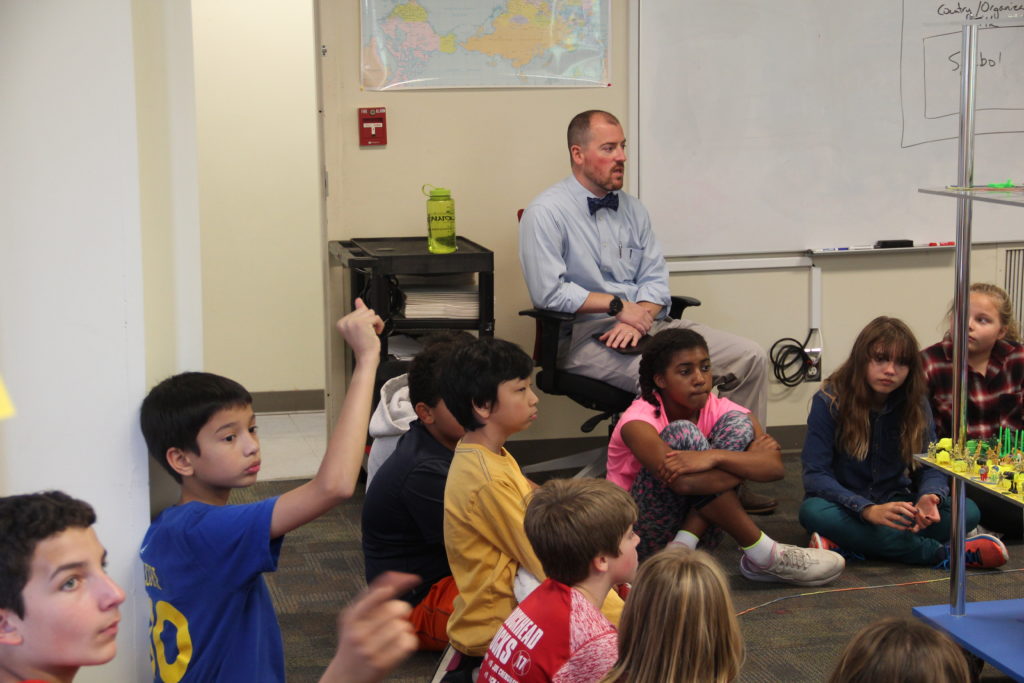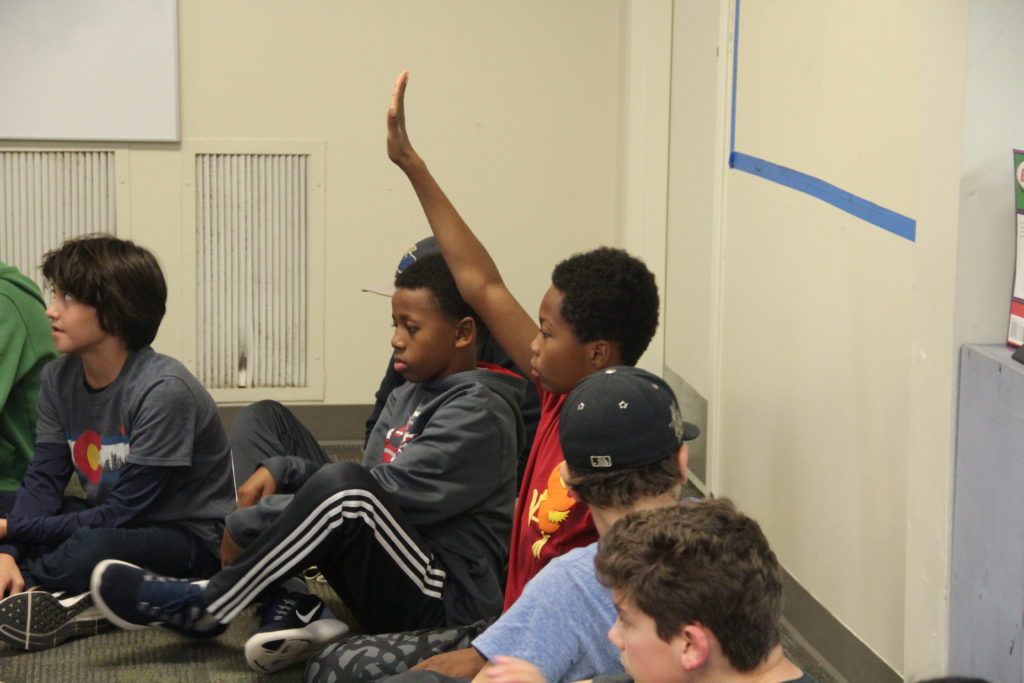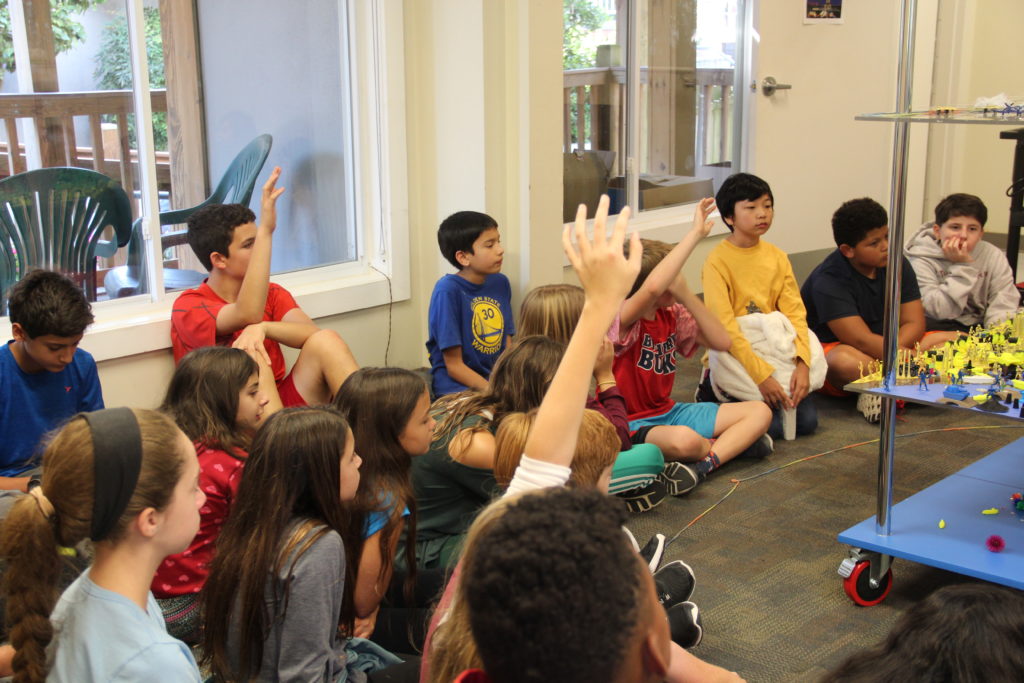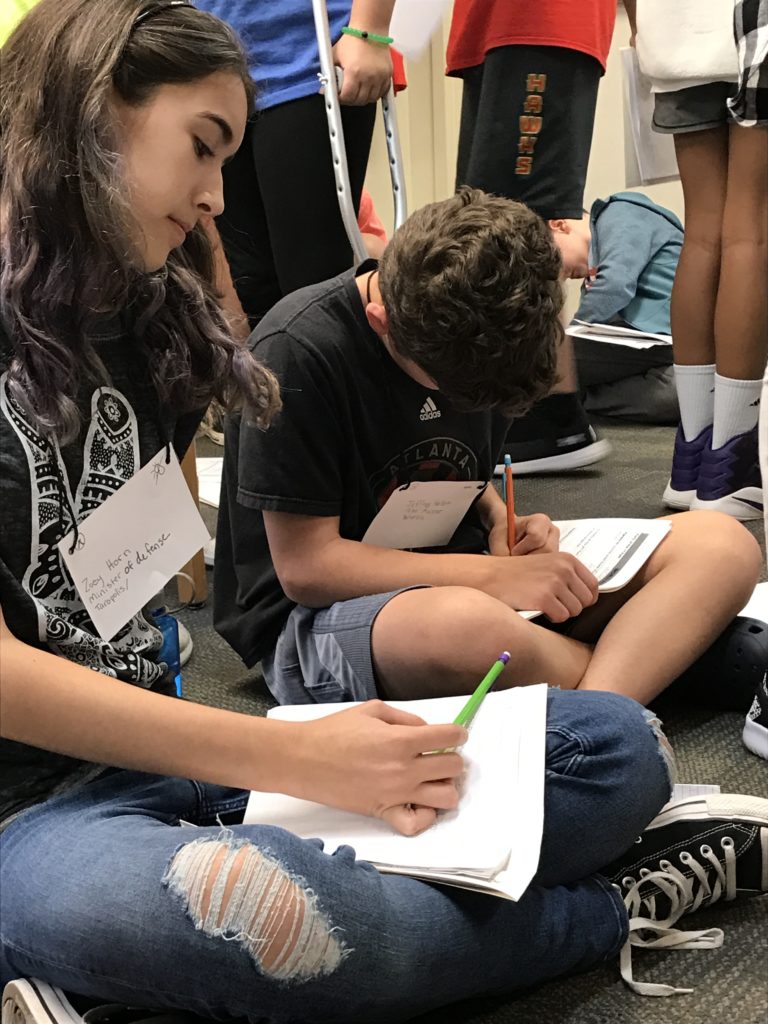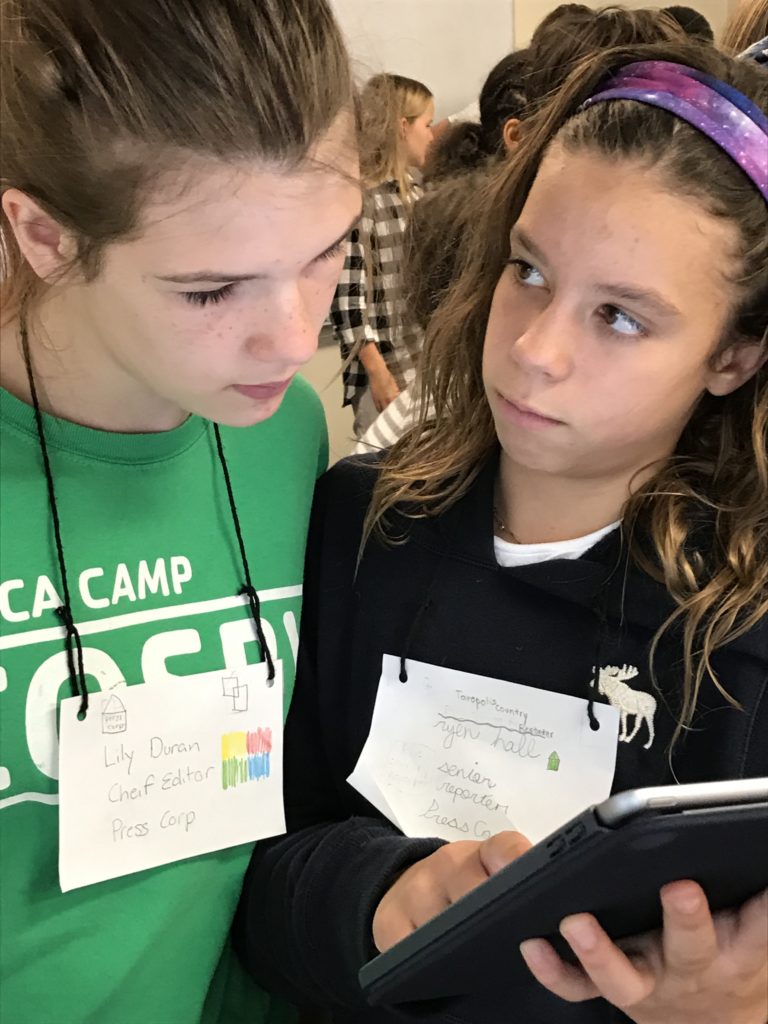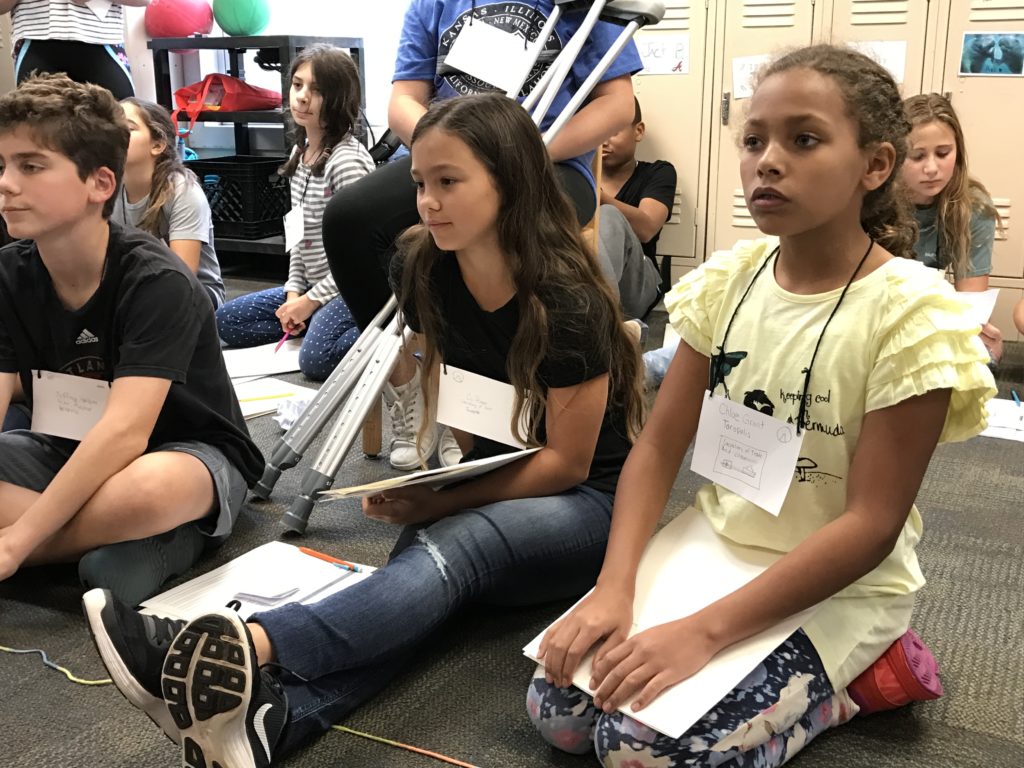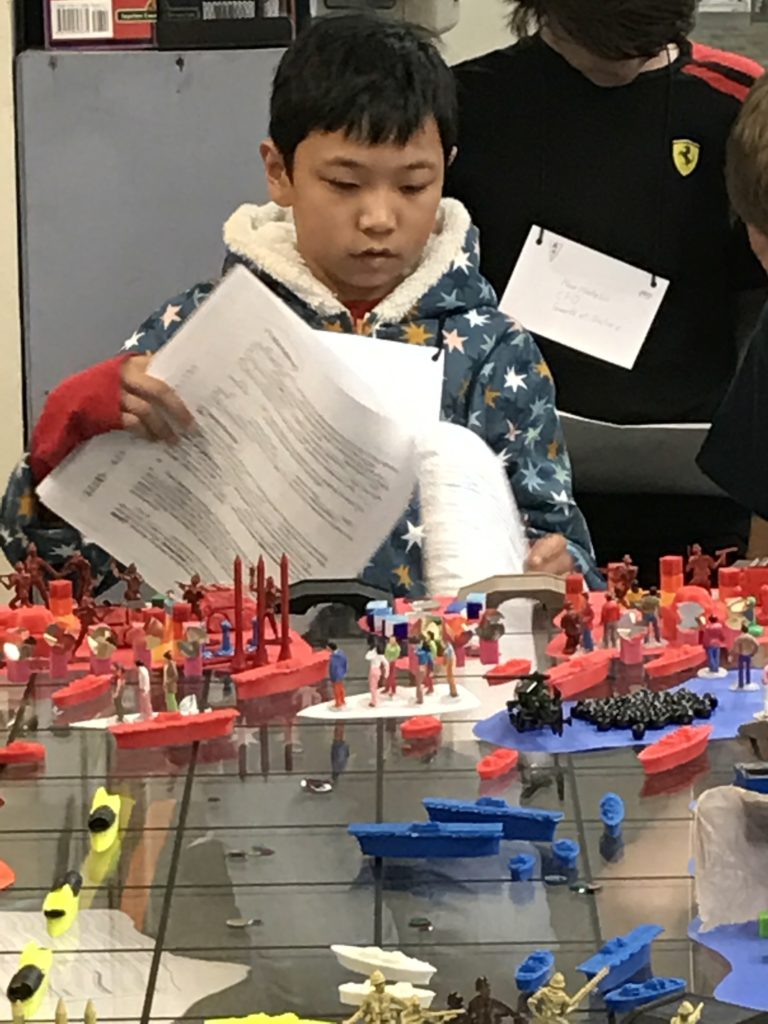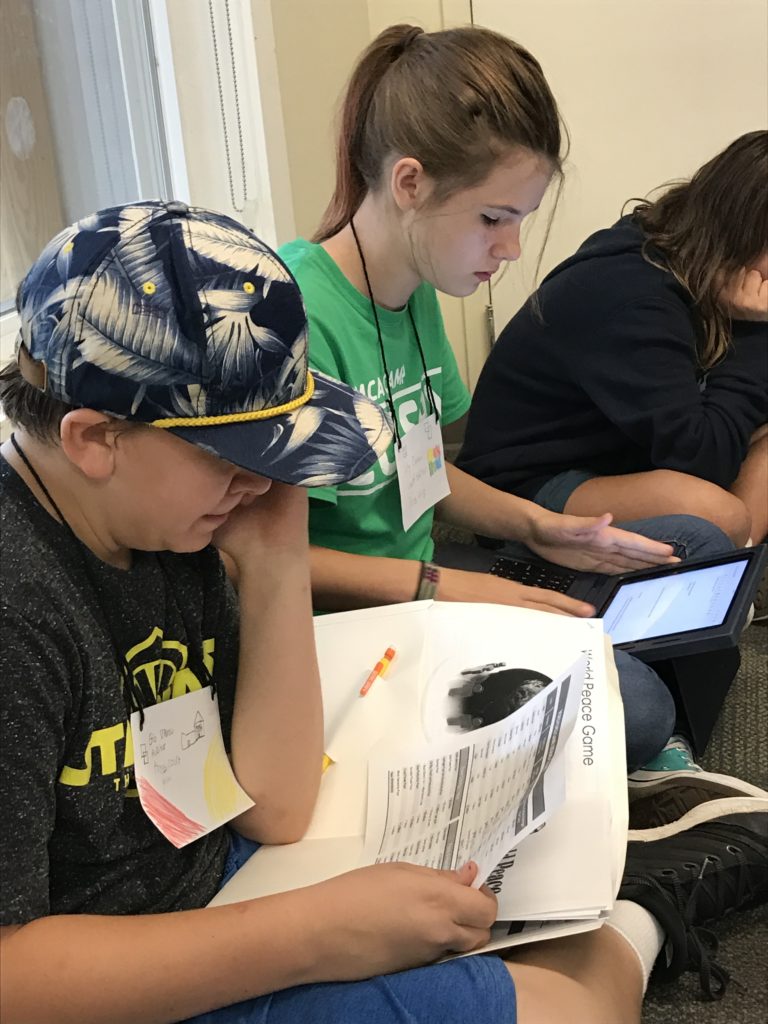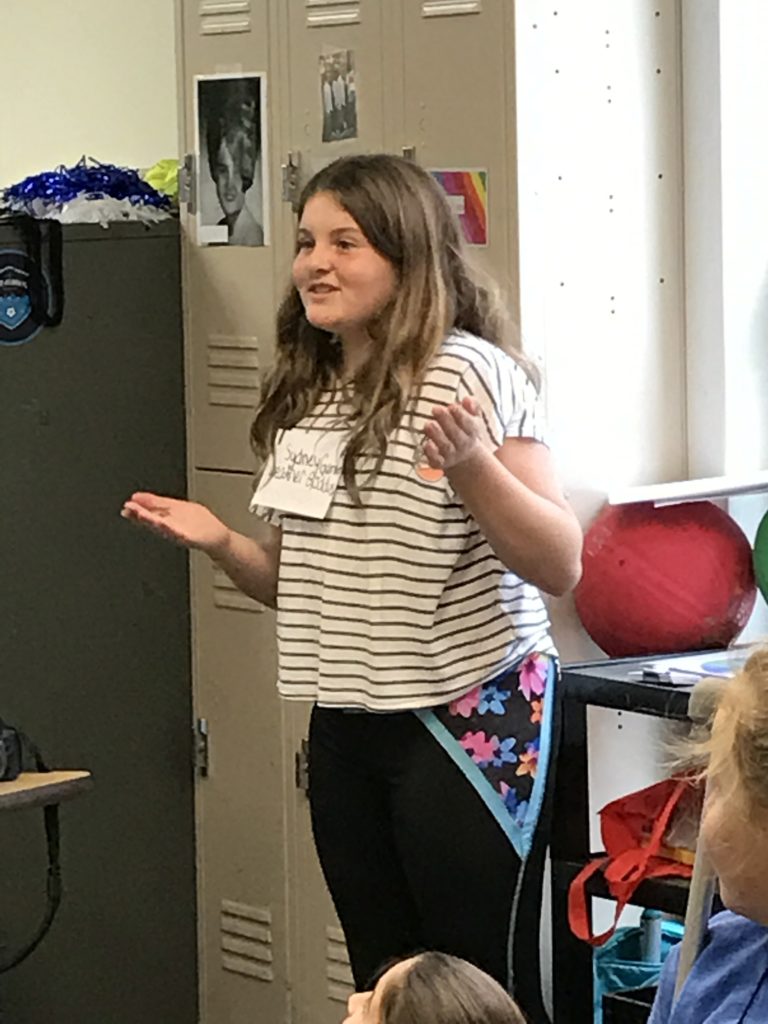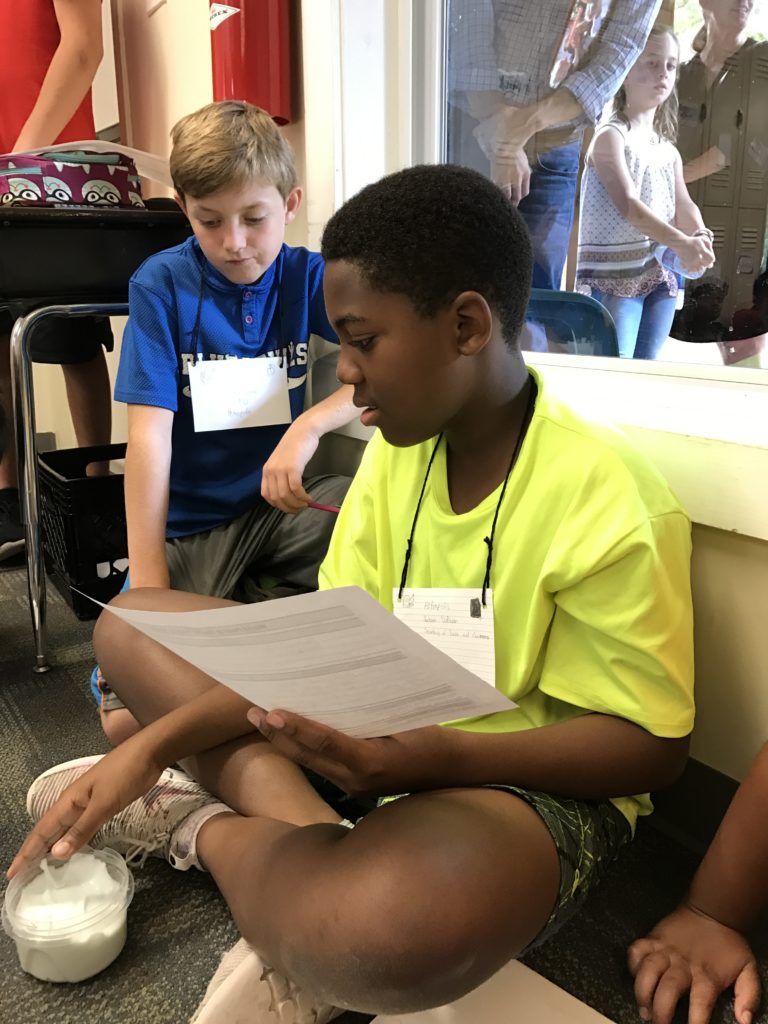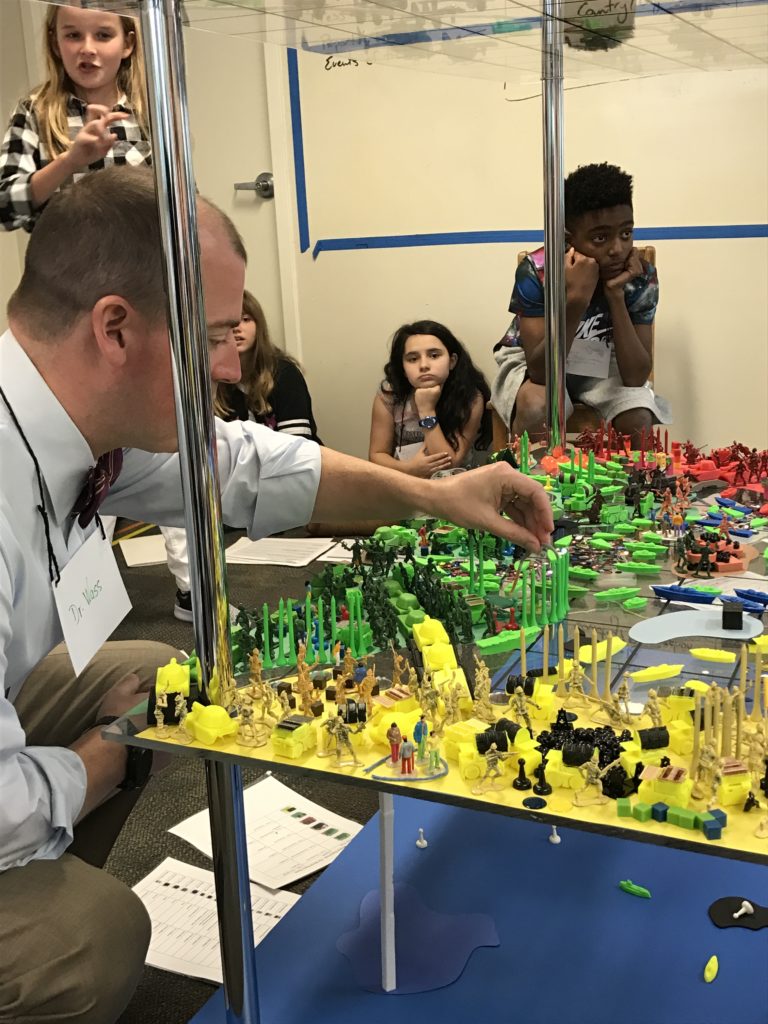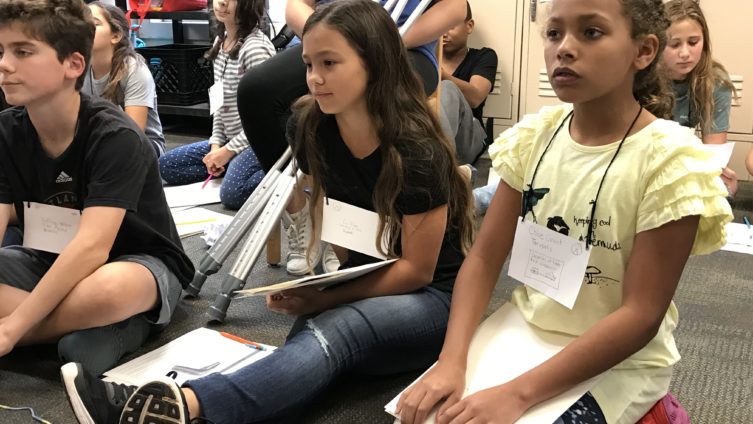
The whole wide world is currently at stake inside our sixth/seventh-grade classroom!
Last week, the Middle Grades were introduced to The World Peace Game, an interactive game that helps students learn global connectedness through the lens of social, environmental, and economic crises – all while being on the brink of war.
In this immersive project-based learning (I-PBL) unit, students, grouped into teams, are tasked with protecting their country from dangerous circumstances and achieving global prosperity with the least amount of military intervention.
The game takes real-world problems and dilemmas, like nuclear proliferation and conflict, and layers those into a project-based learning unit so kids can see the connection between the classroom and real world. The students grapple with big ideas while collaborating, communicating, and compromising to achieve peace – a much more immersive and relevant experience than reading about it in a book or learning about it through the news.
“The I-PBL unit is called ‘Peace in Conflict’ and the idea is: how might we create peace in a world which is always in conflict? How might we create peace in instances where the world is constantly on the brink of war?,” said Middle Grades teacher Todd Wass. “As the game starts, they’re on the brink of war where all these crises are happening so they have to solve them. The game itself is really about critical thinking and collaboration and how all the things that are going on in the game are interconnected just like they are in the real world. So when you do one thing to a country or in one aspect of the game, it affects and changes everything else.”
Before our Middle Grades students dove into the game, our Middle Grades teachers traveled to Denver, Co. for a five-day World Peace Game master class where they became certified in the game and learned how to facilitate the game in the classroom.
“It was helpful to see it facilitated in such a way that it is not the teacher’s job to solve the problems,” said Middle Grades teacher Kelly Lyn. “Our role is really to maintain the emotional security of the students and integrity of the game so that students have to step in, make their own decisions, make mistakes, and clean it all up.”
Our sixth/seventh graders are up to the challenge of thinking critically about how each one of them impacts the world with small, everyday decisions and finding solutions on a global scale beyond the classroom!
“It was hard starting without a budget, but I think I know how to get more money by paying the fines we owe,” said sixth-grader Bella. “We still don’t have any land to put the things we need on. The first day went pretty okay, and we’ve only had one fine so far.”
The game was created by John Hunter, an award-winning teacher and education consultant. He first played the game in 1978 in Richmond, Va. Since then, he’s grown the game and focused on more complex social and political conditions to challenge students and strengthen their collaboration and communication skills. Click here to watch more about the game and here to hear John’s TED talk.
